Latin America’s Rightward Shift Continues In Honduras
Honduras’ newly elected president, Nasry Asfura of the conservative National Party, was sworn in on January 27, 2026. The election, held on November...
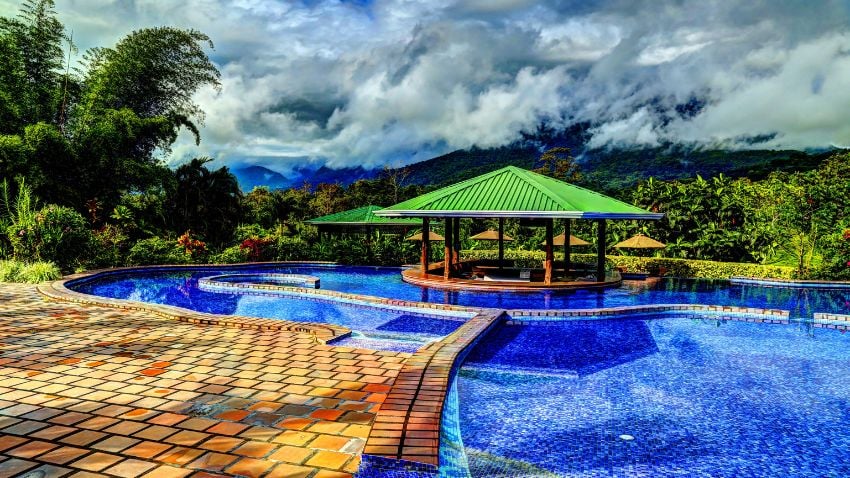
Many people from countries like the United States and Canada have taken advantage of their proximity to Costa Rica and travelled there on vacation. There is good news for those interested in exploring Costa Rica long-term, as the country offers many attractive residency programs. You can easily gain residency in Costa Rica as an entrepreneur, digital nomad, remote employee, or investor. Moreover, Costa Rica has a clear track to citizenship for those who become a resident and stay in the country long-term. Costa Rica is one of Central America's most stunning and geographically diverse countries and is a great option to consider. This article will explore the numerous available residency options, as well as the opportunity to use this to apply for citizenship ultimately.
Becoming a citizen of Costa Rica is a significant step that involves navigating a process intricately tied to the country's commitment to openness and inclusivity. Costa Rica welcomes foreigners seeking citizenship under various circumstances. Common pathways include residency, marriage to a Costa Rican citizen, or having Costa Rican family ties. Understanding the eligibility criteria based on your circumstances is the first step.The process of becoming a citizen in Costa Rica is overseen by the government. It typically involves a thorough evaluation of your background, compliance with residency requirements, and adherence to legal protocols. The government ensures that those seeking citizenship align with the values and principles of Costa Rican society.
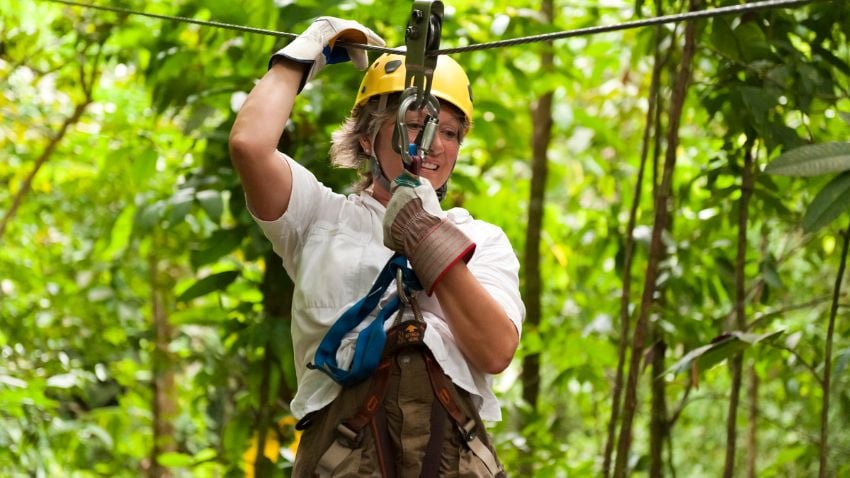
Woman smiling in zipline, Costa Rica jungle
Most people will have to be a resident of Costa Rica for seven years before they apply for citizenship. The only exceptions are people from Central or Latin America (5 years) or someone who married a Costa Rican citizen (2 years). Costa Rica provides multiple options for people to become a resident, either through work, entrepreneurship, or investment. The investment and income requirements for all of these programs are very modest. All of these options require you to be proficient in Spanish and Costa Rican history, which shouldn’t be challenging if you spend more than five years in the country.
Related content: The Basics Of How To Get A Second Passport Or A Second Residency
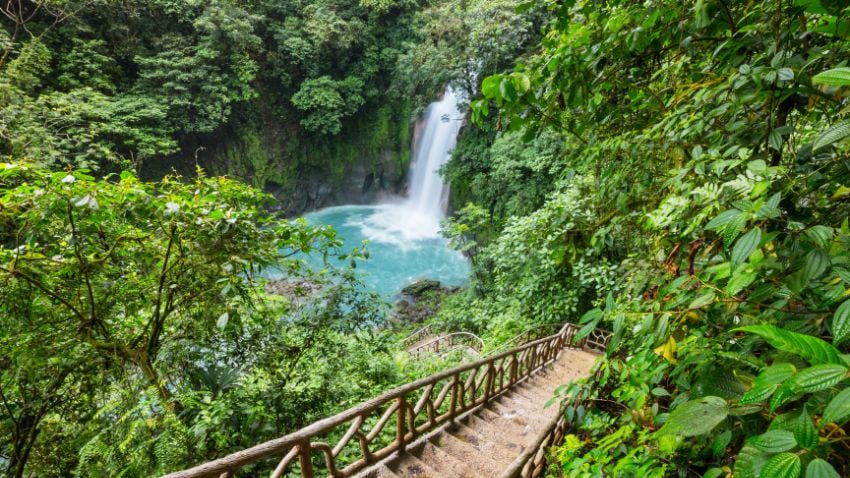
Majestic waterfall in the rainforest jungles of Costa Rica, tropical hike
Suppose you are interested in retiring in Costa Rica. In that case, you should also consider how your residency in Costa Rica would allow you to later apply for Costa Rican citizenship. Costa Rica is an excellent place for you to retire, as there is a special visa that gives you a temporary residence permit if you receive a pension and want to live in Costa Rica. Moreover, you can apply for permanent residency in Costa Rica after living in Costa for three years on a temporary residence permit. Once you have lived in Costa Rica for a combined seven years, on the temporary and permanent residency permit, you are then eligible to apply for Costa Rica citizenship.

Driving 4x4 in Costa Rica
Costa Rica also grants residency to anyone who proves they can financially support themselves through remote employment, entrepreneurship, or by working as an independent contractor. Individuals must prove they have a guaranteed income of $2,500 USD/month for two years and will receive a temporary residence permit. Many applicants meet this requirement by depositing $60,000 USD at a local bank in Costa Rica to ensure that they have sufficient funds for the period or proving that they sent this amount to a local bank during the two years. One key factor to note is that you are not allowed to work for local companies during the two years you are on this visa. However, living in Costa Rica on this visa will enable you to apply for permanent residency, which grants you the privilege of working for local companies. Once you have spent seven years living in Costa Rica, you are eligible to apply for citizenship.
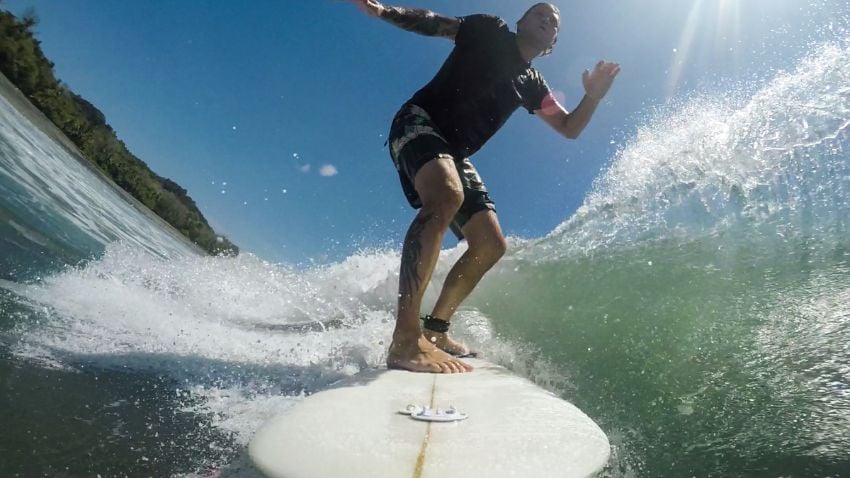
Surfer on a wave at the famous. Pavones Surfbreak, the 2nd longest left in the world
If you invest in Costa Rica, you can become a resident and later have the right to apply for citizenship. The minimum investment amount required is $200,000 USD unless you choose to invest in forest plantations, and then the minimum investment amount is $100,000 USD. Costa Rica is very flexible with this program and allows you to invest in real estate, businesses, or stocks in Costa Rica. When you apply for residency under this program, you can include your spouse and any dependents under 25 years old. You can renew the initial two-year permit if you continue to hold the investments and live in the country for more than six months out of every year. Once you have spent seven years in the country, you are eligible to apply for citizenship through naturalization.
Related content: Getting Residency In Costa Rica Is Pretty Easy
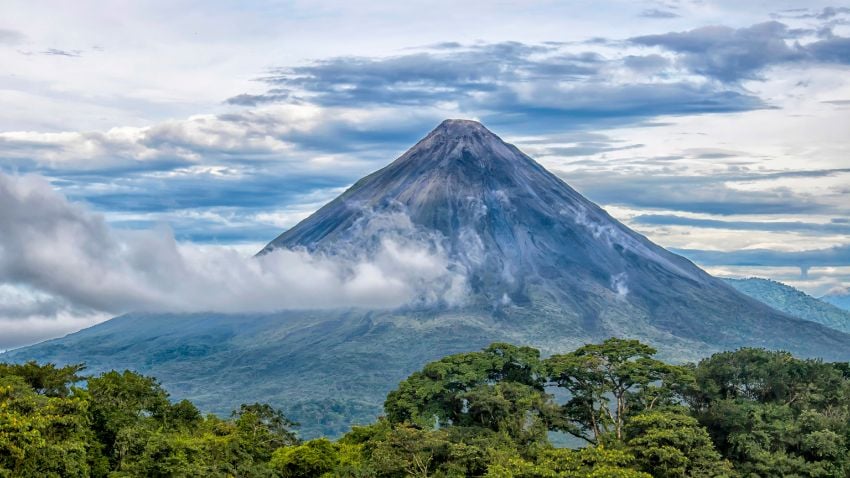
Arenal Volcano in Costa Rica
Regardless of which method you choose to become a permanent resident, you will still have to pass other tests when applying for citizenship. You will need to have a proficient understanding of Spanish, demonstrated by your reading and writing skills, and you must also be knowledgeable about Costa Rican history.
Accessing accurate information is crucial in this process. Costa Rican consulates, both within the country and abroad, serve as valuable resources. They provide information on requirements, documentation, and can offer assistance to foreigners aiming to become an integral part of Costa Rican society.
You will also be required to provide the following supporting documentation:
These documents must be authenticated in Costa Rica and translated into Spanish. It can take over a year for you to hear back about your application decision.
Costa Rica has a relatively strong passport, which can open you up to new travel opportunities without a visa. Having a Costa Rican passport allows you to easily travel to over 70% of countries in the world. You can travel visa-free to 90 countries and receive a visa on arrival to 46 countries. This passport can be most useful for travelling around other countries in Latin and Central America. These combined benefits are a bonus relative to Costa Rica’s permanent residency program, which does allow you to stay in the country indefinitely like citizens.
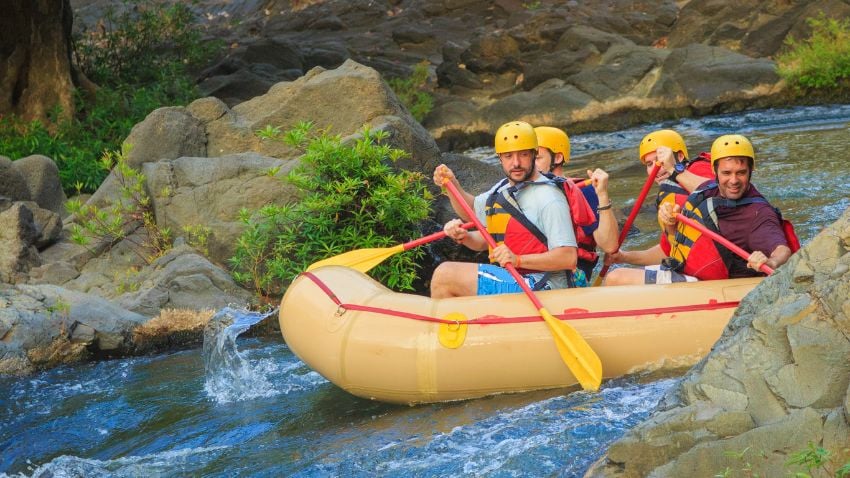
Rafting in Costa Rica
Becoming a citizen of Costa Rica is not just a legal transition; it's an embrace of the country's values, culture, and community. The government's commitment to inclusivity, coupled with assistance for foreigners, ensures that the path to Costa Rican citizenship is navigable for those who choose to make this vibrant nation their home.
If you plan to stay in Costa Rica long term, it is worthwhile to explore the option of becoming a citizen in the future. Many people may not even think it is an option or assume it is out of their reach. Costa Rica is a solid option if you are fine with living in the country long term while waiting and don’t want to invest there. However, suppose time is more of an essential factor. In that case, it could be worthwhile to consider similar programs in countries like Argentina and Peru, which take less time and have similar application requirements.
If you want the best intel from the expat world, including profitable offshore opportunities, little-known tax-saving strategies, and hard-won insights on immigration, passports, and Plan-B residencies, all delivered to your inbox every single week, then join our daily correspondence, EMS Pulse®. Currently enjoyed by over 84,000 expats and expat-hopefuls worldwide. Fill in the form below to join our newsletter free:

Written by Mikkel Thorup
Mikkel Thorup is the world’s most sought-after expat consultant. He focuses on helping high-net-worth private clients to legally mitigate tax liabilities, obtain a second residency and citizenship, and assemble a portfolio of foreign investments including international real estate, timber plantations, agricultural land and other hard-money tangible assets. Mikkel is the Founder and CEO at Expat Money®, a private consulting firm started in 2017. He hosts the popular weekly podcast, the Expat Money Show, and wrote the definitive #1-Best Selling book Expat Secrets - How To Pay Zero Taxes, Live Overseas And Make Giant Piles Of Money, and his second book: Expats Guide On Moving To Mexico.

Honduras’ newly elected president, Nasry Asfura of the conservative National Party, was sworn in on January 27, 2026. The election, held on November...

For a growing number of Americans, cost-of-living math no longer works. Housing feels harder to reach, everyday costs keep climbing, and long-term...
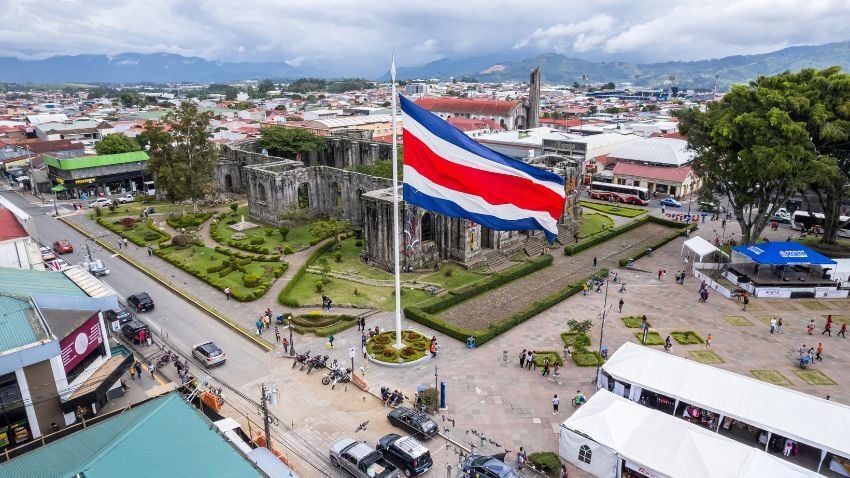
Costa Rica has become one of the most popular expat and digital nomad destinations in Latin America, known for its natural beauty, relaxed lifestyle,...